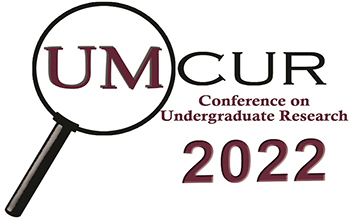Project Type
Poster - Campus Access Only
Faculty Mentor’s Full Name
Ginger Collins
Faculty Mentor’s Department
Communicative Sciences and Disorders
Abstract / Artist's Statement
Title: Preparing Students who Stutter for Life After Graduation
Purpose: The purpose of this national survey is to collect data on current high school-based speech-language pathologists’ (SLPs) practices when developing individualized transition plans (ITPs) for students who stutter (SWS).
Methods: An anonymous survey was distributed nationally to high school-based SLPs via Qualtrics. Descriptive statistics will be used to summarize participant demographics, training/education of ITP practices, characteristics of ITP practices, and their self-efficacy in guiding the ITP process with SWS. Qualitative content analysis will be used to identify major themes in the sample ITP goals that SLPs provide on the survey.
Originality: Like all other students who have an Individualized Education Plan (IEP), SWS must have an Individualized Transition Plan (ITP) incorporated into their IEP by their 16th birthday. An ITP consists of three primary transition domains that help prepare students for life after school: postsecondary education/training, employment, and independent living/community engagement. While ITPs are typically developed with input by a team of school-based professionals (e.g., special education coordinator, special education teachers, resource specialists, etc.), for many SWS, speech-language intervention is the only special service they receive at school, making the school based SLP solely responsible for ITP development. Despite this substantial responsibility, there are currently no data available regarding SLPs’ current practices in preparing students who stutter for life after high school graduation, nor have any guidelines or best practices been published.
Significance: Results of this study will provide preliminary data of current SLP practices in developing ITPs for SWS. These data will help researchers identify 1) potential gaps in service delivery, 2) SLPs’ level of confidence in developing ITP goals for their SWS, and 3) what informs SLPs’ ITP goal development.
Update: The survey was initially distributed on February 1, 2022 and will remain open for responses until July 1, 2022. Responses are currently being recorded and analyzed.
Category
Social Sciences
Preparing Students who Stutter for Life After Graduation
UC South Ballroom
Title: Preparing Students who Stutter for Life After Graduation
Purpose: The purpose of this national survey is to collect data on current high school-based speech-language pathologists’ (SLPs) practices when developing individualized transition plans (ITPs) for students who stutter (SWS).
Methods: An anonymous survey was distributed nationally to high school-based SLPs via Qualtrics. Descriptive statistics will be used to summarize participant demographics, training/education of ITP practices, characteristics of ITP practices, and their self-efficacy in guiding the ITP process with SWS. Qualitative content analysis will be used to identify major themes in the sample ITP goals that SLPs provide on the survey.
Originality: Like all other students who have an Individualized Education Plan (IEP), SWS must have an Individualized Transition Plan (ITP) incorporated into their IEP by their 16th birthday. An ITP consists of three primary transition domains that help prepare students for life after school: postsecondary education/training, employment, and independent living/community engagement. While ITPs are typically developed with input by a team of school-based professionals (e.g., special education coordinator, special education teachers, resource specialists, etc.), for many SWS, speech-language intervention is the only special service they receive at school, making the school based SLP solely responsible for ITP development. Despite this substantial responsibility, there are currently no data available regarding SLPs’ current practices in preparing students who stutter for life after high school graduation, nor have any guidelines or best practices been published.
Significance: Results of this study will provide preliminary data of current SLP practices in developing ITPs for SWS. These data will help researchers identify 1) potential gaps in service delivery, 2) SLPs’ level of confidence in developing ITP goals for their SWS, and 3) what informs SLPs’ ITP goal development.
Update: The survey was initially distributed on February 1, 2022 and will remain open for responses until July 1, 2022. Responses are currently being recorded and analyzed.
